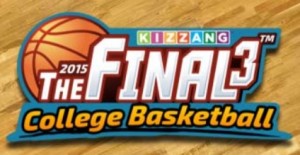February 14, 2018

The National Collegiate Athletic Association (the “NCAA”) recently boxed out sweepstakes app provider Kizzang LLC (“Kizzang”) and its principal in a trademark lawsuit filed in connection with the planned name of Kizzang’s 2017 college basketball-themed promotional contest.
Why should operators in the contest and sweepstakes space think twice before launching a new promotion?
Sweepstakes App Promotion
Kizzang sponsors games, sweepstakes and contests through its Web and mobile platforms. Kizzang awards prizes for predicting the results of sporting events, including the NCAA’s Division I Men’s Basketball Championship. As we have previously reported, Kizzang partnered with Time Inc. in 2016 for the “Sports Illustrated 2016 College Basketball Bracket Challenge,” which offered a $25 million cash prize and was accessible through Kizzang’s downloadable sweepstakes app.
This year, Kizzang apparently planned to use the marks “FINAL 3” and “APRIL MADNESS” in connection with the March Madness college basketball tournament and Final Four round of play. Kizzang also filed federal trademark applications for FINAL 3 and APRIL MADNESS with the U.S. Patent and Trademark Office (USPTO).
NCAA’s Trademark Lawsuit
Eight days before the kickoff of March Madness 2017, the NCAA sued Kizzang and its owner/founder in the U.S. District Court for the Southern District of Indiana (Case No. 17-cv-712), alleging that the defendants infringed upon and diluted the NCAA’s famous FINAL FOUR and MARCH MADNESS marks by adopting and using the FINAL 3 and APRIL MADNESS marks.
On the eve of the March Madness tournament, the parties agreed to a stipulated order forbidding Kizzang from using the FINAL 3 (or THREE) and APRIL MADNESS marks in connection with any basketball-themed contest, promotion or service for the remainder of the year. However, the defendants did not otherwise answer or respond to the NCAA’s trademark lawsuit within the time allowed. In July 2017, the NCAA requested that the Court enter a default judgment against the defendants.
Default Judgment Against Kizzang
Last month, the Court granted the NCAA’s motion for default judgment, permanently enjoining Kizzang and its principal from using the marks FINAL 3 (or THREE), FINAL FOUR, MARCH MADNESS and/or APRIL MADNESS, respectively, in connection with entertainment services, including online sweepstakes and contests.
Crucially, the Court also found that the defendants violated the Lanham Act and that the trademark lawsuit is an “exceptional case,” entitling the NCAA to recover its attorneys’ fees. The NCAA has until next Friday to file its Motion for Attorneys’ Fees.
Protect Yourself
Many sweepstakes-related regulatory and legal risks can be minimized or eliminated entirely by working with experienced marketing counsel before launching a promotional contest. Well-planned promotions can help protect contest and sweepstakes sponsors and their marketing partners from substantial liability. Additionally, a sweepstakes lawyer can help promotion sponsors address a number of legal concerns and industry best practices related to contest rules, sweepstakes advertising, consumer privacy, bonding requirements and other areas of compliance.
Generally, sponsors of sweepstakes and contests should obtain the written permission of any third-party brand owner whose name, logo or product is prominently featured in connection with a promotion. Among other things, trademark owners may insist on being: (1) explicitly disclaimed as a sponsor of, or affiliated with, the subject promotion in the official Contest Rules and in associated promotion advertising; (2) included as co-sponsors of the promotion; (3) acknowledged with trademark symbols (® or ™) when the sponsor references their brands; or (4) omitted from the subject promotion’s name and description entirely.
If you are interested in learning more about this topic or pursuing a sweepstakes-related venture, or if you are involved in a trademark dispute, please e-mail us at info@kleinmoynihan.com, or call us at (212) 246-0900.
The material contained herein is provided for informational purposes only and is not legal advice, nor is it a substitute for obtaining legal advice from an attorney. Each situation is unique, and you should not act or rely on any information contained herein without seeking the advice of an experienced attorney.
Attorney Advertising
Related Blog Posts:
Sports Illustrated, Sweepstakes App Provider Announce March Madness Bracket Challenge



